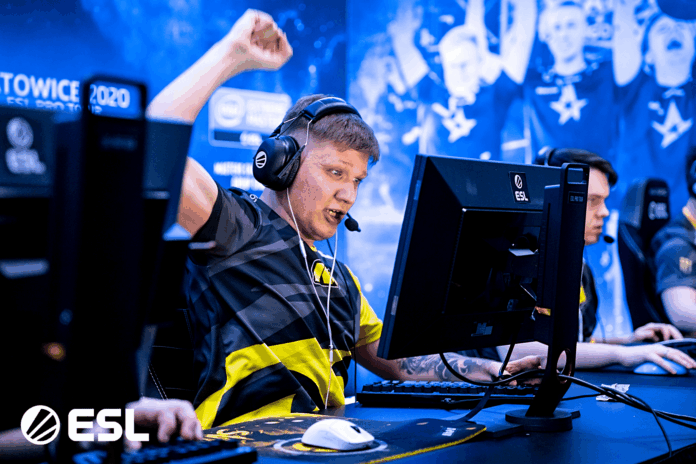On the decisive map, several players of Natus Vincere experience lags caused by an unknown person from outside. And this happens even though the tournament takes place as a LAN event.
It’s the biggest nightmare for every esport athlete and organiser: a hacker attack on the PC during a match. But that’s exactly what happened to Oleksandr “s1mple” Kostyliev and his Natus Vincere teammates during an ESL Pro League match in CS:GO on Wednesday night. This is despite the tournament being held in Malta as a LAN event.
Lags on the decisive map
The match between Natus Vincere and Heroic had gone smoothly during the first two maps. Both teams had won one map each. But in the first round of the decisive third map Overpass, the match had to be interrupted for the first time because s1mple was lying.
Shortly after the match resumed, however, the problems continued. In the broadcast, it was clearly visible how both s1mple and his colleagues Valeriy “b1t” Vakhovskiy and Viktor “sdy” Orudzhev stuttered through the area. A total of five breaks with a total length of over two hours were taken due to technical problems on NaVi’s part.
On Thursday morning, Ulrich Schulze, Senior Vice President of Game Ecosystems at ESL, confirmed on Twitter that it was a “targeted attack from outside against individual players. “
The delay on yesterday’s final EPL match was caused by a targeted external attack against individual players. After we identified the issue, the match could resume. We have taken several measures to mitigate this for upcoming matches, and have also relayed our findings to Valve.
– Ulrich Schulze (@theflyingdj) September 29, 2022
But how can something like this happen at a LAN event? The PCs are disconnected from the public internet, explained Michal Slowinksi, CS:GO referee, in a tweet.
There is no public Internet, everything apart from Steam is blocked. That’s why this “exploit” is so unique, it works like DDoS attack but through Steam, with Steam packets.
– Michal Slowinski (@michau9_) September 29, 2022
That’s why this attack is unique, he said. “It works like a DDoS attack through Steam, using Steam packages,” Referee wrote. A recent video by YouTuber Sparkles explains how such an attack might have looked in detail.
After the long game interruptions, however, the ESL technicians were able to solve the problem. The game was continued, NaVi could win the last map with 16-7. The ESL took several measures to ensure that the problem would no longer occur in subsequent games, said Ulrich Schulze on Twitter. In addition, the findings have also been passed on to the developer Valve.


